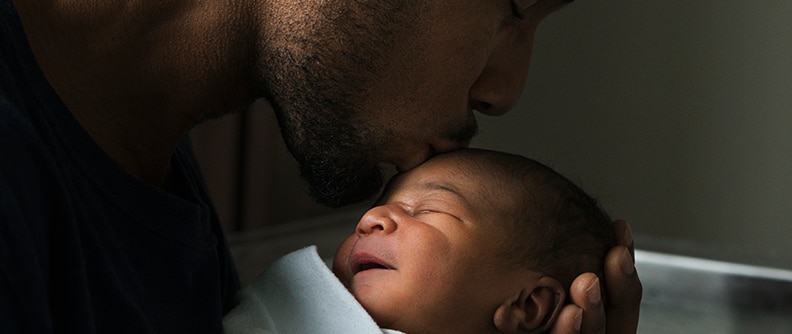Good sleep is essential for your baby’s healthy growth. It’s also essential for you as you recover after giving birth.
Some babies sleep for long stretches of time, even when they’re very young. Others take months to get on a predictable sleep schedule. Over time, you’ll pick up on cues that your baby’s ready for bed. Signs your newborn is getting sleepy include:
- Fussing more than normal.
- Less movement of the arms and legs.
- Losing interest in people or toys.
- Rubbing their eyes, face, or ears.
- Sucking from your breast or a bottle more slowly.
- Yawning.
When you notice these behaviors, be sure to soothe your baby to help them fall asleep.
What to do if your baby has trouble sleeping
Babies sometimes have trouble sleeping, and it’s completely normal. If your baby can’t seem to fall asleep, you can try:
- Swaddling your baby so that they are wrapped snuggly can help them feel secure and calm.
- Soothing the baby by rocking them in your arms. Holding your baby on their side or tummy can work well for soothing, but be sure to place them on their back to sleep.
- Use sound such as “shhhing” and playing soft music or other background white noise.
- Offering a breast/chest or a pacifier once breastfeeding is well established.
Putting your baby down to sleep when they are drowsy but still awake can help them learn to fall asleep on their own. Holding or rocking them until they are completely asleep may make it harder for them to fall back to sleep if they wake up.
Tips for you to get more sleep
Getting enough rest helps you provide the best care for your baby. If you can, nap throughout the day and night when your baby does. You might ask a family member or friend to watch your baby while you snooze. When breastfeeding is well established and you won't be uncomfortable skipping a feeding, a partner or other person can offer nighttime bottle feedings so you can get a better night’s rest.
